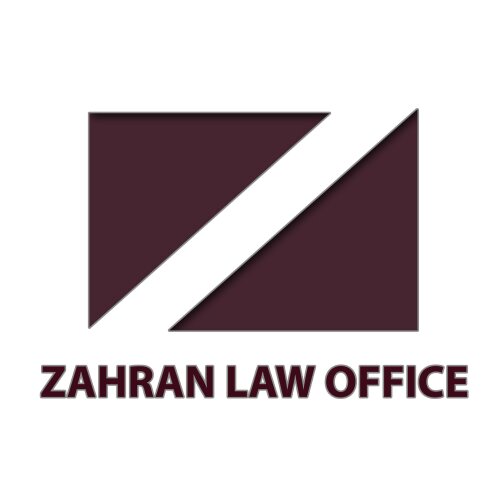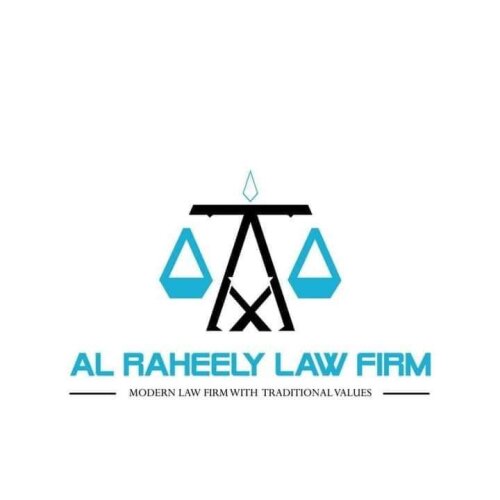Best Private Equity Lawyers in Cairo
Share your needs with us, get contacted by law firms.
Free. Takes 2 min.
List of the best lawyers in Cairo, Egypt
About Private Equity Law in Cairo, Egypt
Private equity (PE) in Cairo, Egypt represents an essential segment of the financial markets, attracting both local and international investors seeking growth opportunities. The private equity landscape involves investing directly in private companies or engaging in buyouts of public companies, resulting in their eventual delisting from stock exchanges. In Egypt, and particularly in Cairo as the nation's commercial heart, private equity deals are commonly associated with the acquisition, restructuring, and eventual sale of companies for profit. The sector is governed by a dynamic legal and regulatory framework, tailored to both protect investors and foster significant capital inflow into Egyptian businesses.
Why You May Need a Lawyer
Engaging in private equity transactions in Cairo can be complex, with numerous legal, regulatory, and commercial variables involved. You may require a lawyer in several situations, including:
- Structuring a private equity fund or investment vehicle.
- Conducting legal due diligence before acquiring shares in a company.
- Drafting and negotiating investment agreements and shareholder arrangements.
- Navigating compliance with local and international regulations.
- Securing regulatory approvals for cross-border investments.
- Resolving disputes between investors or between investors and company management.
- Addressing issues related to tax optimization or repatriation of profits.
- Dealing with exit strategies, such as initial public offerings or secondary sales.
Local Laws Overview
The legal framework governing private equity in Cairo, Egypt, consists of a combination of commercial, corporate, investment, and financial market regulations. Key aspects include:
- Companies Law No. 159 of 1981: Governs the formation, operation, and dissolution of companies in Egypt, critical for both fund structures and portfolio companies.
- Capital Markets Law No. 95 of 1992: Regulates activities involving securities, including private placements and mergers and acquisitions.
- Investment Law No. 72 of 2017: Offers incentives and protections for foreign and domestic investors, including tax benefits and guarantees against arbitrary expropriation.
- Regulatory Oversight: The Financial Regulatory Authority (FRA) oversees non-banking financial activities, such as private equity and venture capital funds, to ensure compliance with local law and investor protection.
- Foreign Investment Regulations: There are restrictions and reporting requirements for foreign investors, especially in sensitive sectors.
- Tax Considerations: Egypt has particular rules regarding the taxation of dividends, capital gains, and repatriation of profits for both local and international investors.
Legal support is essential to navigate these laws and ensure that private equity transactions are legally sound and financially efficient.
Frequently Asked Questions
What is private equity and how does it work in Cairo, Egypt?
Private equity involves investing in private companies or buying out public ones to drive growth or improve performance before eventually reselling them at a profit. In Cairo, these transactions operate under a set of Egyptian commercial and investment laws designed to protect both investors and local businesses.
Do private equity funds need to be licensed in Egypt?
Yes, private equity funds operating in Egypt must obtain licenses from the Financial Regulatory Authority and comply with regulatory requirements regarding registration, reporting, and ongoing disclosure.
What sectors are most attractive for private equity investment in Cairo?
Traditionally, sectors such as healthcare, education, financial services, consumer goods, and technology have attracted significant private equity interest in Cairo due to their growth potential.
Are there restrictions on foreign investment in private equity deals?
While Egypt generally encourages foreign investment, certain sectors are restricted or subject to additional approval processes. It is important to check these requirements with legal counsel prior to proceeding.
What is the typical process for a private equity transaction in Cairo?
A standard transaction includes deal sourcing, due diligence, negotiations, regulatory approvals, signing investment agreements, restructuring if necessary, and eventual exit through resale or public offerings.
How long does a private equity acquisition process typically take?
The process timeline can vary widely, usually taking from several months to over a year, depending on the complexity of the deal, the sector, and regulatory approvals required.
What are the main legal risks in private equity transactions?
Risks include regulatory non-compliance, undisclosed liabilities during due diligence, currency and tax issues, and challenges enforcing contractual rights or exit strategies.
What is due diligence and why is it important in private equity?
Due diligence is the legal, financial, and operational assessment of a target company. It is crucial for identifying potential risks and liabilities before finalizing any investment.
How can a lawyer help with cross-border private equity investments?
A lawyer can assist with structuring the transaction to comply with both Egyptian and foreign laws, facilitate necessary regulatory approvals, and address issues related to currency movement and taxation.
What happens if there is a dispute between private equity partners?
Disputes are typically resolved through arbitration or local courts, depending on the terms set out in the company's shareholders agreements. Having robust agreements in place can often prevent or resolve disputes effectively.
Additional Resources
There are several organizations and regulatory bodies that can provide useful resources or guidance for private equity matters in Cairo:
- Financial Regulatory Authority (FRA): The main regulatory agency overseeing non-banking financial services, including private equity, in Egypt.
- General Authority for Investment and Free Zones (GAFI): Responsible for promoting and facilitating investment in Egypt, GAFI is useful for information on incentives and regulatory procedures.
- Egyptian Private Equity Association (EPEA): An industry group supporting the private equity and venture capital sector in Egypt, offering networking opportunities and market insights.
- Egyptian Exchange (EGX): Provides information on publicly listed companies in Egypt, some of which may be targets for private equity investment or exit.
- Ministry of Investment and International Cooperation: Sets broad policies and incentives impacting the investment climate, including for private capital.
Next Steps
If you are considering private equity investments in Cairo, Egypt, it is vital to seek professional legal assistance at the earliest stage of your planning. Here is how to proceed:
- Identify your investment goals and desired sector.
- Consult with a local lawyer experienced in private equity and Egyptian business law.
- Gather preliminary documentation and set a timeline for due diligence.
- Work with your legal advisor to develop a transaction structure that aligns with local laws and your business objectives.
- Secure all required licenses and regulatory approvals before committing capital.
- Ensure clear agreements are drafted for all parties involved, including shareholders and management teams.
- Continue to work with legal and financial experts throughout the investment lifecycle, including planning your exit strategy in accordance with Egyptian law.
Taking these steps, with qualified legal support, helps safeguard your interests and maximize your investment’s success in the Cairo private equity market.
Lawzana helps you find the best lawyers and law firms in Cairo through a curated and pre-screened list of qualified legal professionals. Our platform offers rankings and detailed profiles of attorneys and law firms, allowing you to compare based on practice areas, including Private Equity, experience, and client feedback.
Each profile includes a description of the firm's areas of practice, client reviews, team members and partners, year of establishment, spoken languages, office locations, contact information, social media presence, and any published articles or resources. Most firms on our platform speak English and are experienced in both local and international legal matters.
Get a quote from top-rated law firms in Cairo, Egypt — quickly, securely, and without unnecessary hassle.
Disclaimer:
The information provided on this page is for general informational purposes only and does not constitute legal advice. While we strive to ensure the accuracy and relevance of the content, legal information may change over time, and interpretations of the law can vary. You should always consult with a qualified legal professional for advice specific to your situation.
We disclaim all liability for actions taken or not taken based on the content of this page. If you believe any information is incorrect or outdated, please contact us, and we will review and update it where appropriate.

















